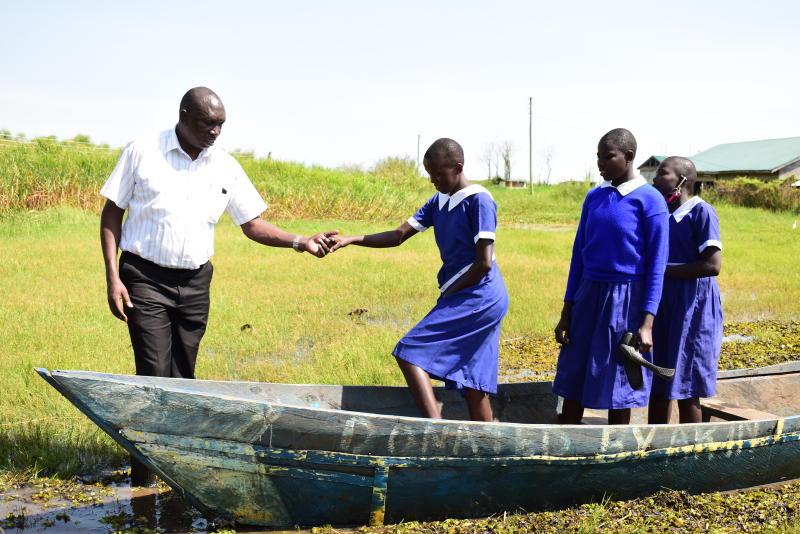×
The Standard e-Paper
Kenya’s Boldest Voice

Mwalimu Humphreys Ouma waits patiently for two wooden canoes ferrying his pupils to manoeuvre a stretch of murky waters to the doorstep of a classroom. He waits to help them disembark to attend classes.
This has been the routine for the last year, since the back-flow of waters from Lake Victoria and floods engulfed part of Musoma Primary School, where he is the headteacher.